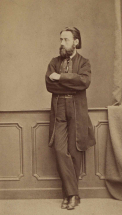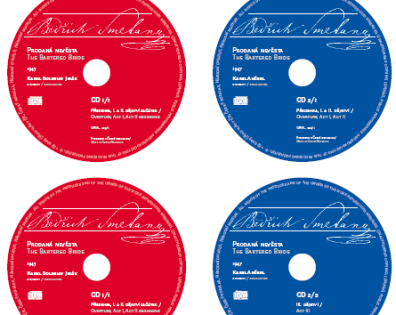26. 9. 2009 10:30
Czech Statehood Day 28th September 2009
The Saint Wenceslas's tradition has played an important role in the Czech history. As a saint, Duke Wenceslas began to represent and protect the ruling dynasty as early as from 10th century and then he became a patron saint of the entire Czech nation. Wenceslas was the fourth ruler of the Přemyslide dynasty who was historically recorded. His portrait with the Přemyslide coat of arms and banner became a symbol of the country and its people; the name Wenceslas is understood as a synonym for inhabitants of Czech countries and the Czech Crown. 28th September, the day of Duke Wenceslas's death, has been a state holiday – the Czech Statehood Day since 2000.
Bedřich Smetana was a significant Czech composer of the romantic period. He brought himself into the public's notice especially through the art association Concordia. He also lived in Sweden where he worked as a teacher. After his return to Bohemia, Smetana became a member of the art association Měšťanská Beseda, he was a choirmaster of the Hlahol chorus and was also elected to chair the chorus of the Umělecká beseda. In 1866 he became a bandmaster of the Temporary Theatre in Prague. Through his art he responded to the revolutionary year 1848 and wrote marches and later also polkas. On the occasion of its opening, the National Theatre in Prague put the Smetana´s opera Libuše on the stage on 11 June 1881. In the end of his life Smetana became deaf but he did not cease to compose. Bedřich Smetana is well-known all over the world especially thanks to his cycle of symphonic poems "Má vlast" (My Country), and the opera Bartered Bride which is nowadays valued as an ideal of a national opera. The opera was put on the stage of the National Theatre also on the day of his funeral in 1884.
"Despite ages that have passed, the Bartered Bride has still been speaking to us through its folksiness, and through its comprehensible and still valid story. It is not an out-of-date, antiquated work of art which is always dusted off on the occasion of an anniversary. For more than 140 years the Bartered Bride has been with us, with the Czech nation, and it is a witness and a reflection of its life, twists of its history, times of prosperity as well as times of decline, freedom and non-freedom; it is a support in a time of jeopardy and it sounds sincerely and merrily in happy times", stated the Prime Minister of the Czech Republic, Jan Fischer.
Enhancement of the consciousness of the Czech statehood, and generally of matters connected with the public affairs administration, belongs among principal topics of the Information Centre of the Government. In the last year the Information Centre of the Government published on the occasion of the Czech Statehood Day the book "Where is my home?" – the state anthem of the Czech Republic in changing times; the book maps the history of the Czech anthem, its reception and importance , historical context of the time of its origin and of further development of Czech countries with regard to the consciousness of the Czech statehood and symbolism.





